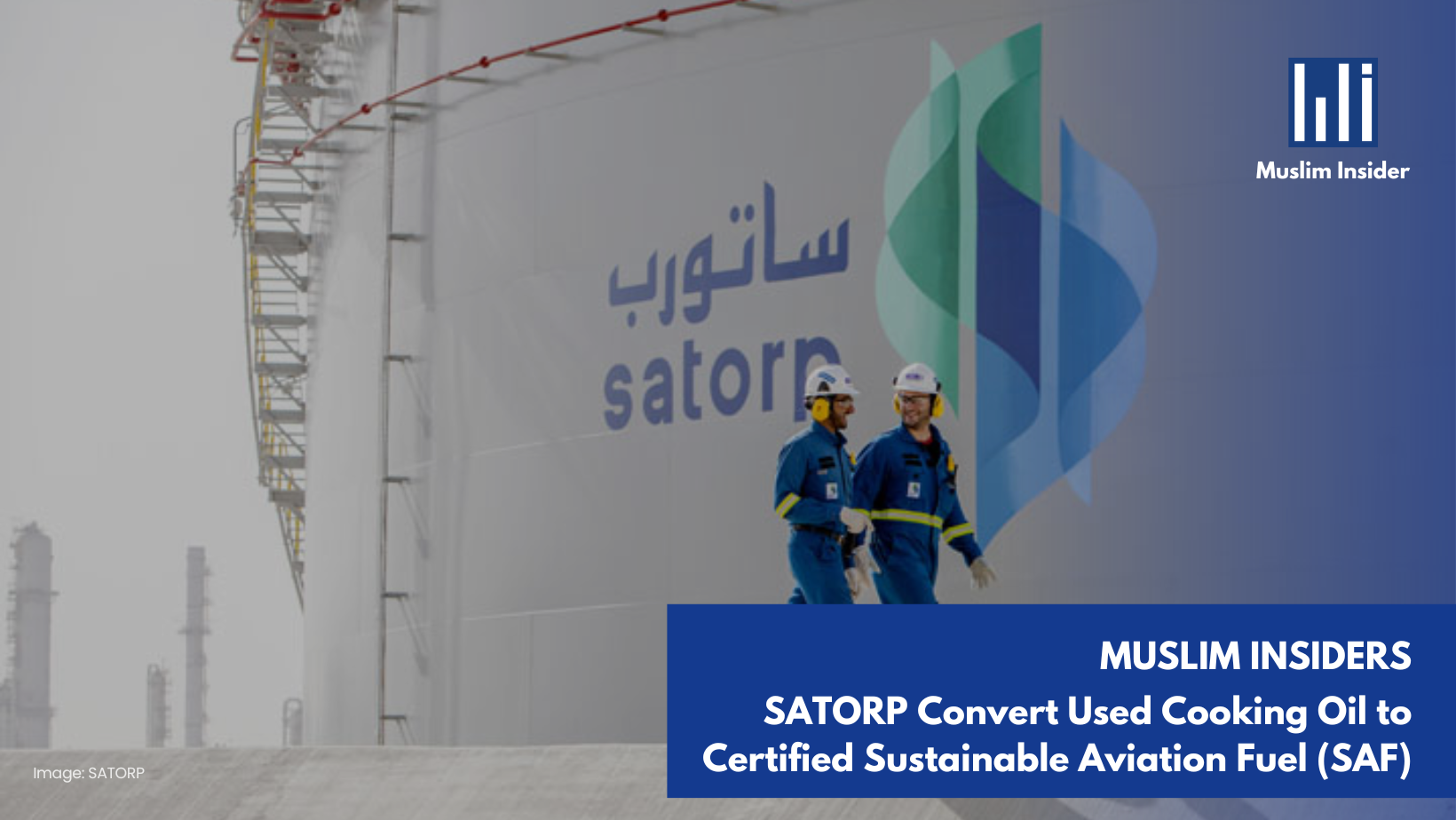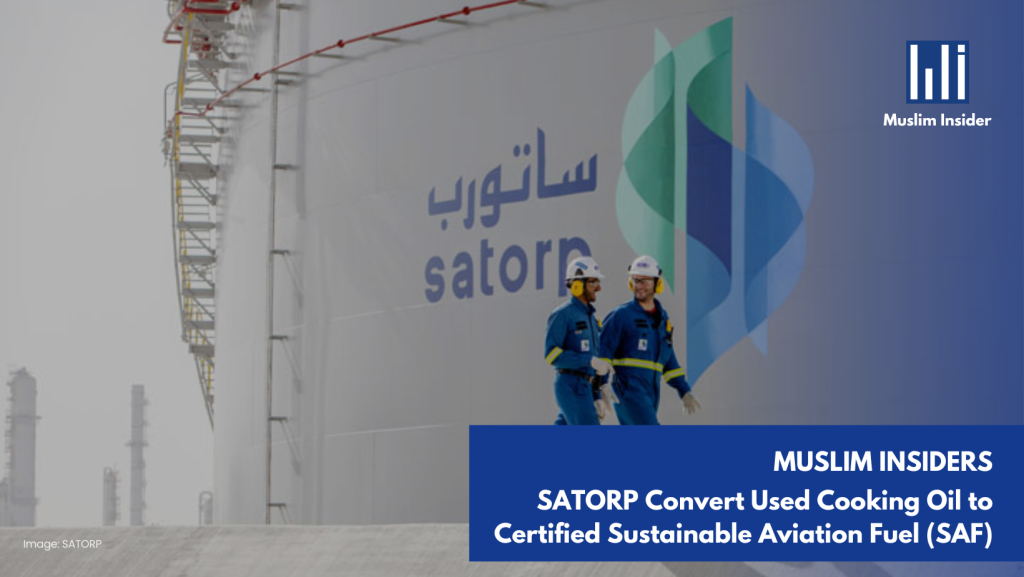SATORP Convert Used Cooking Oil to Certified Sustainable Aviation Fuel (SAF)


Saudi Aramco Total Refining and Petrochemical Co., one of the world’s largest refining and petrochemical platforms, has successfully converted used cooking oil into certified sustainable aviation fuel (SAF).
SAF is a non-conventional (fossil-derived) aviation fuel that is similar to conventional aviation fuel but has a smaller carbon footprint. It has the ability to reduce up to 80% of carbon dioxide emissions, according to the International Air Transport Association. While conventional aviation fuel could be derived from one source, which is crude oil, non-conventional aviation fuel could be derived from various sources, whether it is from waste oil, plants, algae, greases, fats, non-food crops or waste streams.
The non-conventional aviation fuel is beneficial since it could provide a potential solution to the fluctuating crude oil price, reducing their exposure to fluctuations in fuel prices. Also, airlines can help plan their operating expenses and budget better with the diversity of sources for the SAF.
Both Satorp and the SAF, which is produced at the Jubail plant, are International Sustainability and Carbon Certification (ISCC)-compliant. “With this certification, the platform will be able to respond to the expected rise in saf demand in… Saudi Arabia,” TotalEnergies, which owns a 37.5% stake in Satorp, said in a statement.
In a statement, SATORP stated that it anticipates meeting the Kingdom’s increasing demand for SAF and that it believes the fuel made from spent cooking oil helps to lower carbon dioxide emissions over the course of its whole life cycle.
According to MarketWatch, Francois Good, Senior Vice President, Refining and Petrochemicals Africa, Middle East and Asia at TotalEnergies, said: “This project at SATORP is part of TotalEnergies’ aim to produce 1.5 million tons/y of SAF by 2030. Sustainable aviation fuel is essential to reducing the CO2 emissions of air transport, and its development is fully aligned with the company’s climate ambition to get to net zero by 2050, together with society.”






